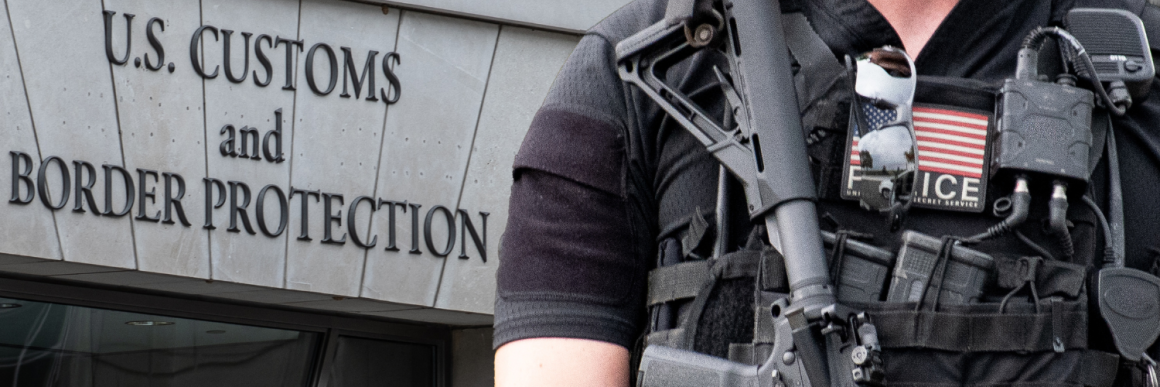
100-Mile Border Zone
The Fourth Amendment of the U.S. Constitution protects people from random and arbitrary stops and searches. The federal government claims the power to conduct certain kinds of warrantless stops within 100 miles of the U.S.
Are immigration officials allowed to stop people within the U.S.?
U.S. Customs and Border Protection (CBP), the federal agency tasked with patrolling the U.S.border and areas that function like a border, claims a territorial reach much larger than you might imagine. A federal law says that, without a warrant, CBP can board vehicles and vessels and search for people without immigration documentation “within a reasonable distance from any external boundary of the United States.” These “external boundaries” include international land borders and the entire U.S. coastline.
What is a “reasonable distance”?
The federal government defines a “reasonable distance” as 100 airless from any external boundary of the U.S. So, combining this federal regulation and the federal law regarding warrantless vehicle searches, CBP claims authority to board a bus or train without a warrant anywhere within this 100-miles zone. Two-thirds of the U.S. population, or about 200 million people, reside within this expande borer region, according to the 2010 census.
KNOW YOUR RIGHTS: If You’ve Been Stopped by Police or ICE
How to Reduce Risk to Yourself:
- Stay calm and do not resist or obstruct the agents or officers.
- Do not lie or provide false documents.
- Prepare yourself and your family in case of arrest:
- Memorize the phone numbers of your family and lawyer.
- Make emergency plans for children, dependents, or necessary medications.
Your Rights:
- You have the right to remain silent. If you choose to exercise this right, state it out loud. (Note: In some states, you may be required to provide your name if asked to identify yourself.)
- You do not have to consent to a search of yourself or your belongings. However, police may pat down your clothing if they suspect a weapon.
- If arrested by police, you have the right to a government-appointed lawyer.
- If detained by ICE, you have the right to consult a lawyer, but the government is not obligated to provide one. You can ask for a list of free or low-cost legal services.
- You do not have to answer questions about where you were born, your citizenship status, or how you entered the U.S. (Note: Separate rules apply at international borders, airports, or for certain nonimmigrant visas like tourists or business travelers.)
What to Do If You Are Arrested or Detained:
- Say, “I wish to remain silent,” and request a lawyer immediately.
- Do not give explanations or excuses. Do not say anything, sign anything, or make decisions without a lawyer.
- If arrested by police, you have the right to make a local phone call. Police cannot listen to calls made to your lawyer.
If detained by ICE, you have the right to:
- Contact your consulate or request that an officer inform your consulate of your detention.
- Share your immigration number (“A” number) with family to help them locate you.
- Keep a copy of your immigration documents with someone you trust.
If you are a non-citizen:
- Consult a lawyer about how a criminal conviction or plea could impact your immigration status.
- Do not discuss your immigration status with anyone but your lawyer.
- If visited by an immigration agent while in jail, do not answer questions or sign anything before consulting a lawyer. Request an interpreter if needed.
If You Believe Your Rights Were Violated:
- Write down all details of the incident, including officers’ badges, patrol car numbers, the agency involved, and any other observations. Gather contact information for witnesses.
- If injured, seek medical attention immediately and document your injuries with photographs.
- File a written complaint with the agency’s internal affairs division or civilian complaint board. Most complaints can be filed anonymously.